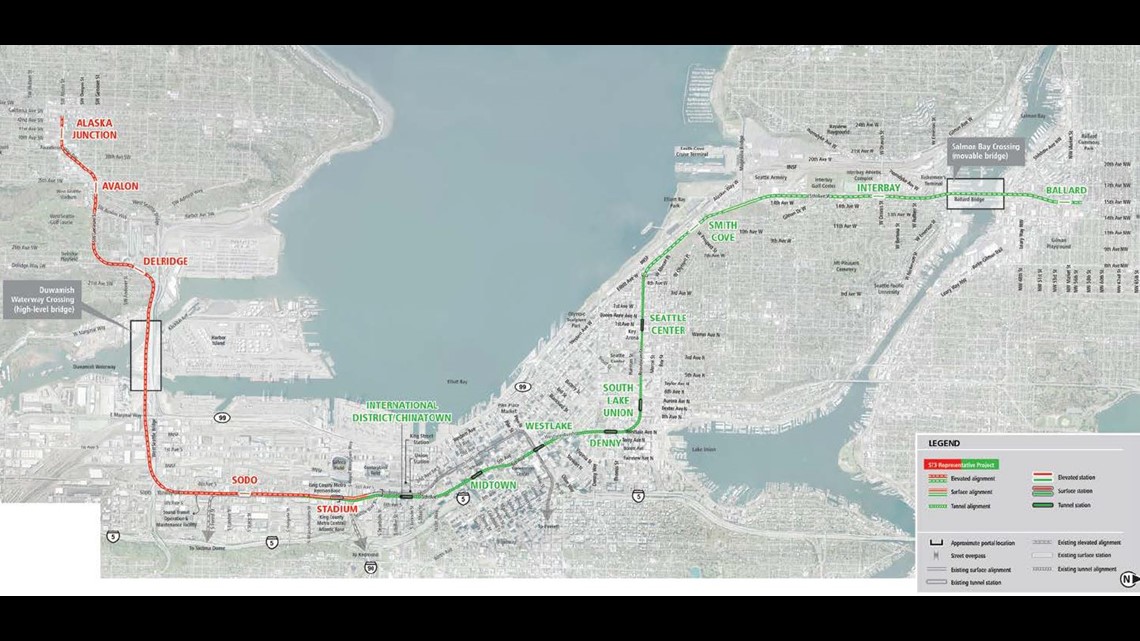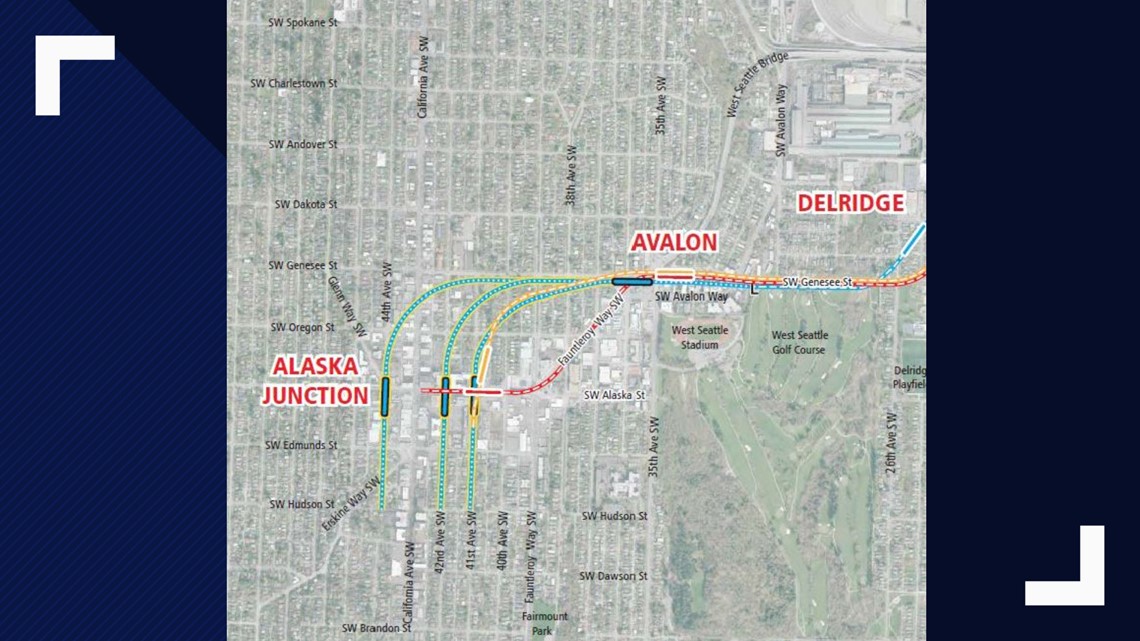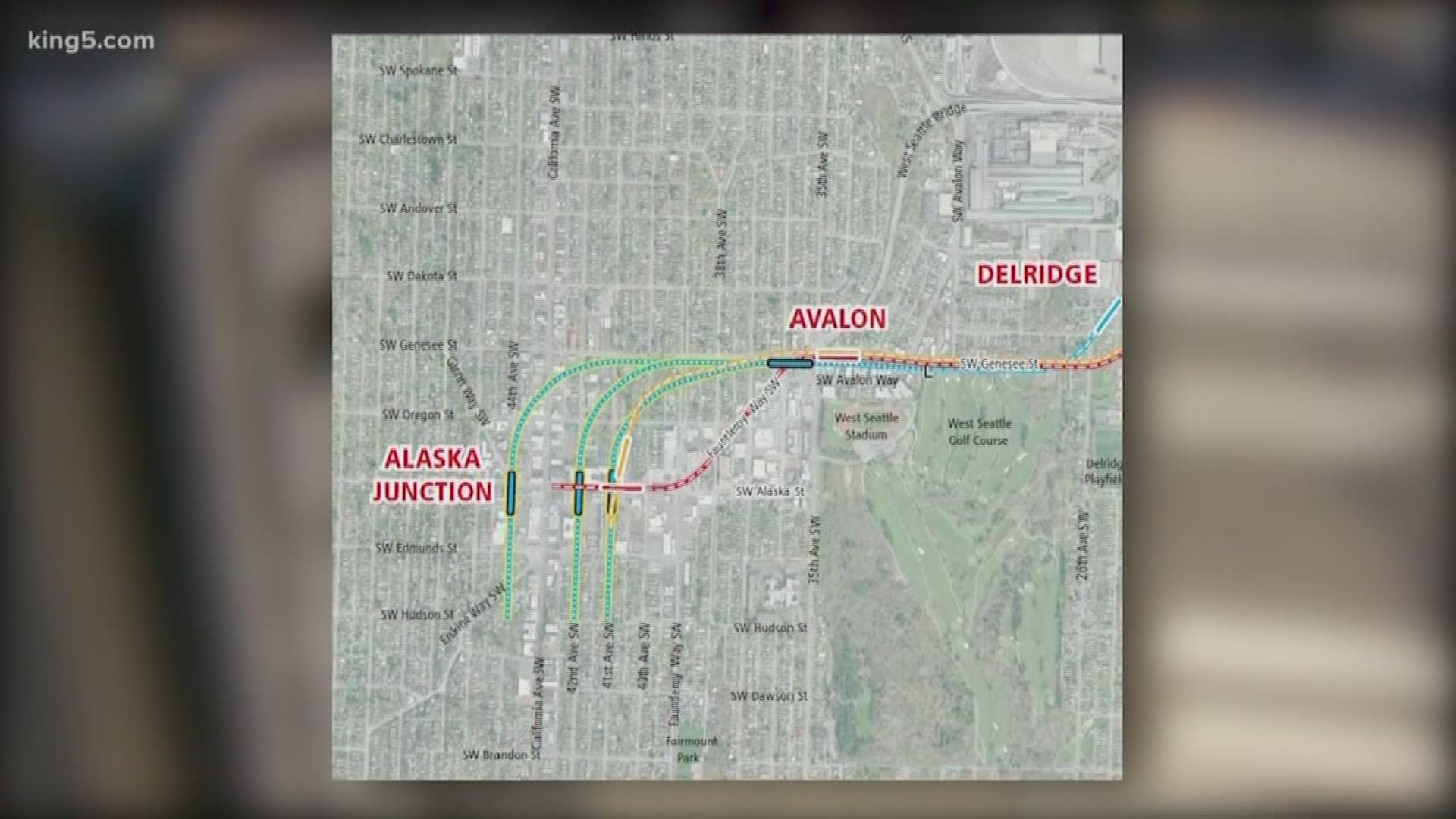A group of elected leaders has encouraged Sound Transit to avoid building an elevated light rail line in West Seattle, and signaled broad support for tunneling a majority of the West Seattle and Ballard lines.
It could also mean more money, above and beyond the roughly $5 billion estimate to build the lines.
The ‘Elected Leadership Group’, or ELG for short, made the recommendations Friday to Sound Transit. They include a list of routes, across the city which will likely go through an environmental review. The group, which was made up of Seattle’s Mayor Jenny Durkan, King County Executive Dow Constantine, multiple Seattle Council members, and Port of Seattle Commissioner Stephanie Bowman, made the recommendation after nearly 17 months of public comment and community feedback.


Bowman also addressed what she felt was the “elephant in the room”, that all the requests could make the project cost swell. Sound Transit’s presentation included referenced to need for “third party funding” to complete it all.
“I'm not going to presume where the extra cash would come from but this is the beginning of a very long process,” said Sound Transit CEO Peter Rogoff after the meeting.
Rogoff said Sound Transit will deliver on the promise to voters, who approved ST3, and the specific line.
“There's not a question there is going to be a new tunnel through the heart of downtown, that's not open to debate,” Rogoff said.
But where the rest of the lines go is open to debate. A group of West Seattleites took issue with the idea of an elevated line to the Alaska junction, which would force the removal of an estimated 100 homes. The ELG eliminated that suggestion to Sound Transit seeking instead a tunnel to an area between Fauntleroy and California.


“We believe it was a terrible option to begin with,” said Tighe Urelius, who is part of a group called the East Alaska Junction Coalition. That group claims the elevated structure would be as tall as the West Seattle Bridge, and through a residential area.
Sound Transit’s board is expected to follow the recommendations with a vote next month.
Rogoff said the environmental review of the routes will take three years. The West Seattle line is expected to open in 2030, and Ballard in 2035.

